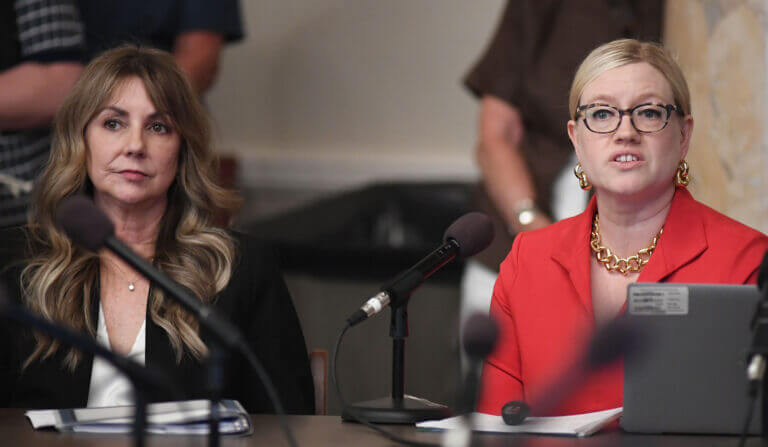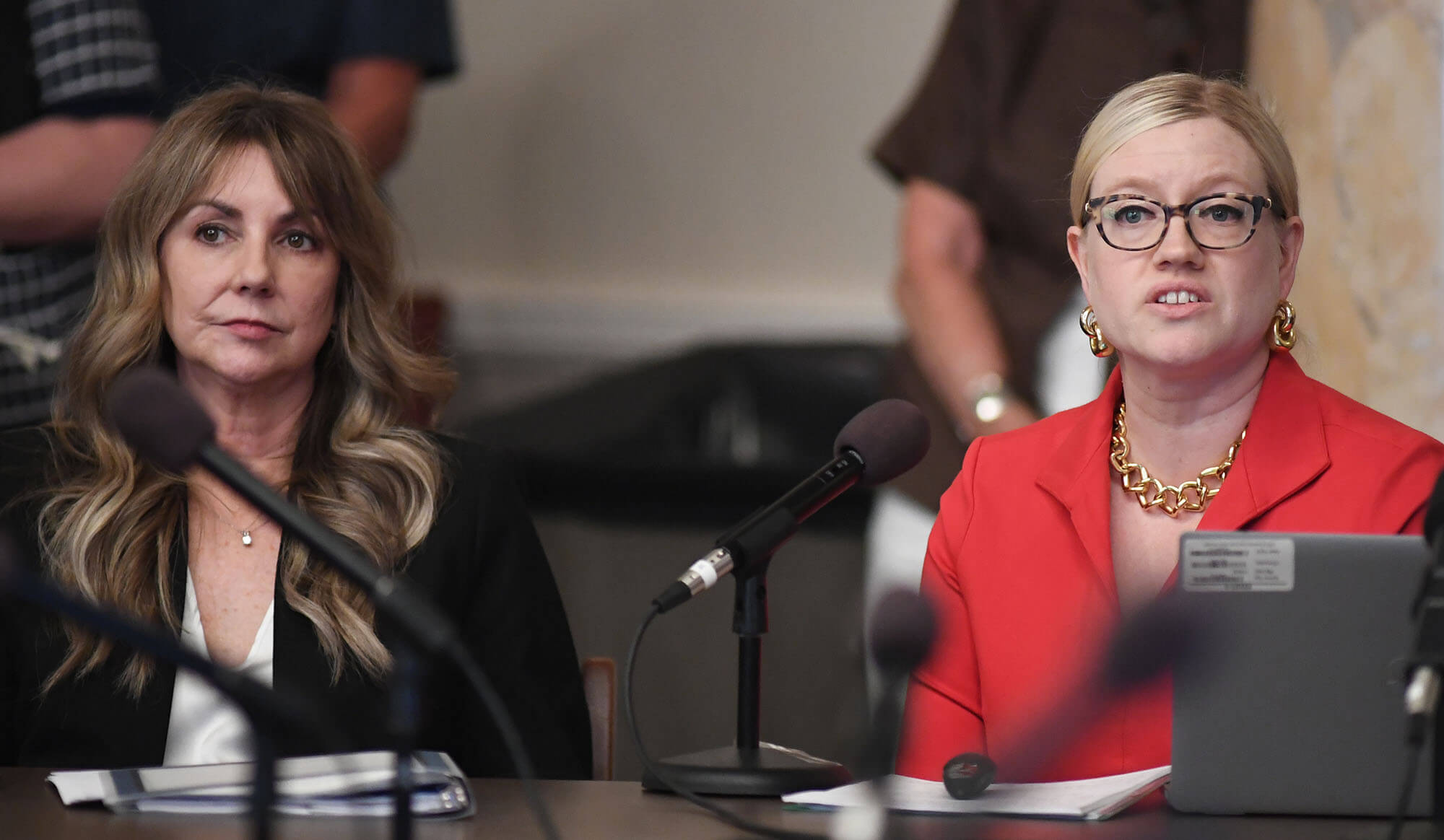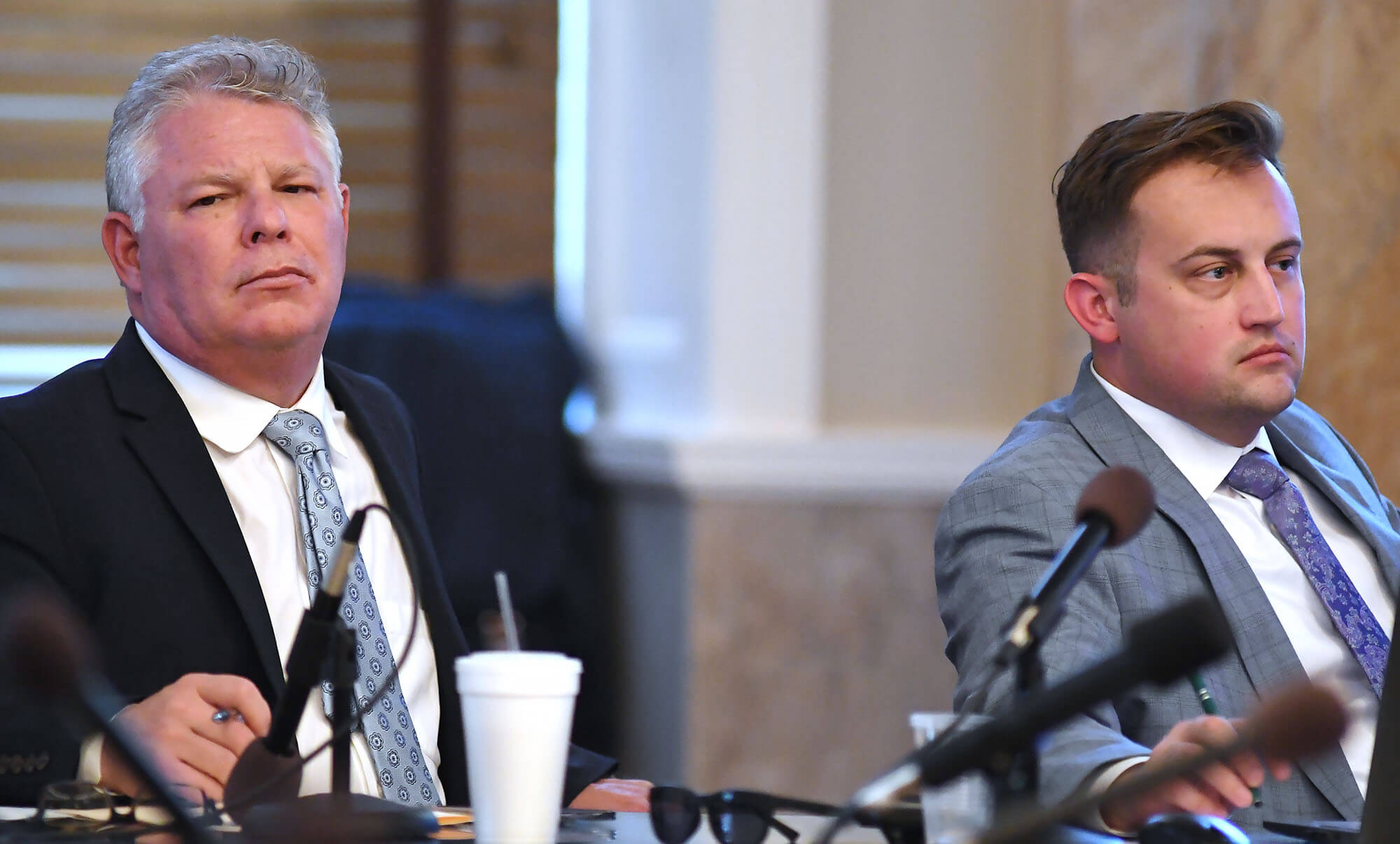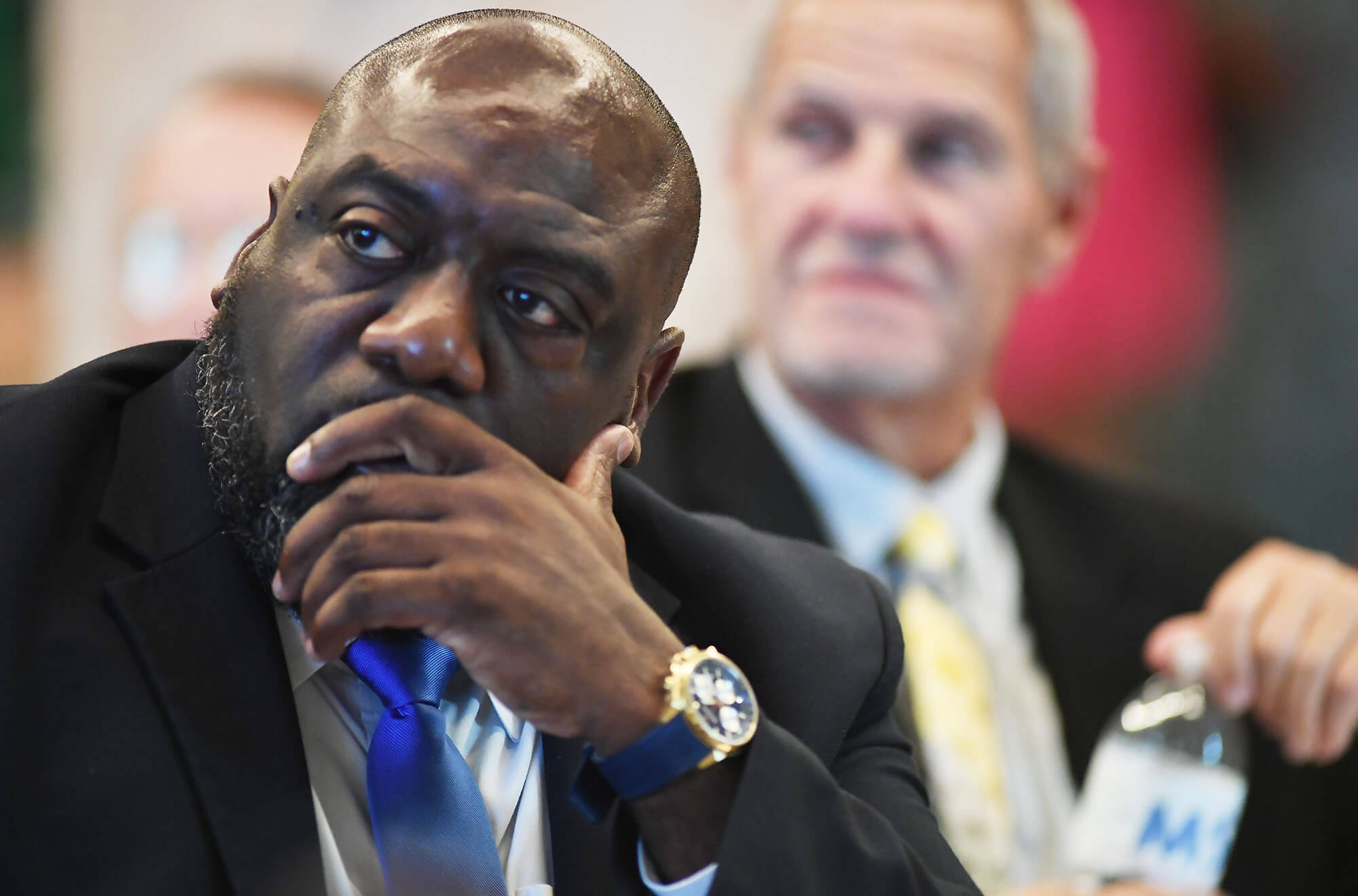

A panel of lawmakers on Monday heard from national education officials who whole-heartedly encouraged them to expand school choice in Mississippi, signaling the Trump administration’s support of passing such legislation.
There was standing room only at the first meeting of the “Education Freedom” select committee, formed by House Speaker Jason White to weigh the pros and cons of implementing a robust school choice program in Mississippi, ahead of the upcoming legislative session.
Advocates, lobbyists and top education officials, including State Superintendent Lance Evans, were in attendance.
School choice — or “education freedom,” as White and other proponents of the legislation call it — refers to a plethora of policies that, in varying degrees, either give money to families to spend on their child’s K-12 education or allow families to move their children to different schools, regardless of their location or whether the schools are public or private. White has indicated repeatedly in recent months that it will be a key issue during the 2026 session.
Those skeptical of the policy, though, say that the state’s hard-fought academic wins hang in the balance.
Rep. Rob Roberson of Starkville, who chairs the House Education Committee and the Education Freedom committee, opened the meeting by asking attendees not to get too “emotional” and stressed that “this isn’t about politics.”

But the only two speakers at the committee’s first meeting were officials appointed to top U.S. Department of Education positions by President Donald Trump — Lindsey Burke, Deputy Chief of Staff for Policy and Programs at the U.S. Department of Education, and Laurie Todd-Smith, who currently leads the federal office that oversees head start and child care. She previously served as former Gov. Phil Bryant’s senior education and workforce policy advisor.
Mississippi’s decision to hold out on expanding school choice was emphasized by Burke, who said it was “time to think differently” about how the state delivers K-12 education, given the uptake of surrounding states.
Burke pushed legislators to consider adopting a universal education savings account, or ESA, program, though White has conceded that option may not be popular enough to pass the Legislature.
A universal ESA program would allow parents to spend the money the state allocates toward educating their child on whatever educational expenses they’d like, whether that’s private school tuition, a tutor or another option. Nineteen states have some sort of ESA model in place, including Mississippi — where only students with disabilities currently qualify.
Burke encouraged the adoption of that kind of program because of Mississippi’s rurality, for one. She said a slow adoption would encourage the growth of private schools and allow parents to choose other options if there wasn’t a nearby private school.
A voucher program, on the other hand, is a sort of coupon that parents can spend on tuition at a private school of their choice, including faith-based schools.
Burke also gave a detailed explanation of the new federal tax credit program, a different sort of school choice model altogether. If Mississippi opts in, which is likely, the program will allow Mississippians to contribute up to $1,700 to an organization that awards scholarships to private school students starting in 2027 in exchange for a tax break of equal amount.
Burke said expanding these types of programs would incentivize public schools to better serve students in order to avoid declining enrollment. But opponents of school choice say that public schools who struggle to meet the needs of their students are chronically under-resourced — any loss of funds would only exacerbate that problem.
Mississippi has only fully funded its education formula — both the old version and the newer version established last year — four times since 2003, Democratic legislators noted at the meeting.
Rep. Jeffrey Hulum III, a Democrat from Gulfport, said the state should wait to see how the new funding formula impacts education before “giving up public funds.” But Republican Rep. Jansen Owen of Poplarville, co-chair of the committee, argued the only way to extend the state’s education gains involves “continuous efforts and reforms to the system.”

If Mississippi’s academic gains are now a model for the country, some legislators wondered why they’d rock the boat by funneling money away from public schools.
Rep. Kevin Felsher, a Republican from Biloxi, said that only two Mississippi school districts are considered failing by the state education department.
“We’re having really great results,” he said. “What do you say to public school advocates who would say, ‘Why do we need to come in and do this?’”
Burke responded that “even the best school is not the best school for everybody” and that “not failing” was a low bar for the state to hold itself to.
There’s practically no evidence to show that low-income students, who Burke said the programs would be aimed toward, see improved test scores from attending private schools. Some legislators also acknowledged that private schools have less oversight than public schools and have no requirement to admit a child.
Todd-Smith, the other speaker, framed her comments on school choice around early education. The state’s early education model is already choice-based, she said — parents can send their child to a pre-K program associated with a school or a child care center of their choosing. She encouraged legislators to expand the state’s existing early education infrastructure, especially child care, to give parents even more choices.
Owens, a proponent of school choice, said he didn’t hear anything in the meeting that swayed him, but the Trump administration’s support came through loud and clear.
Republican Rep. Kent McCarty of Hattiesburg, vice chair of the House Education Committee, said after the meeting that he appreciated the discussion but wants to see more data that supports expanded school choice.
“We’ve heard a lot about all of the academic gains we’ve seen in Mississippi,” he said. “I don’t think this is a silver bullet to extend those gains.
“We’ve come too far to regress.”
The committee is tentatively planning to meet again on Sept. 25.
- Former Hinds sheriff Marshand Crisler’s bribery conviction stands - March 4, 2026
- National Rifle Association successfully lobbies against bill taking away guns from abusers - March 4, 2026
- Data center proposed for Clinton - March 4, 2026